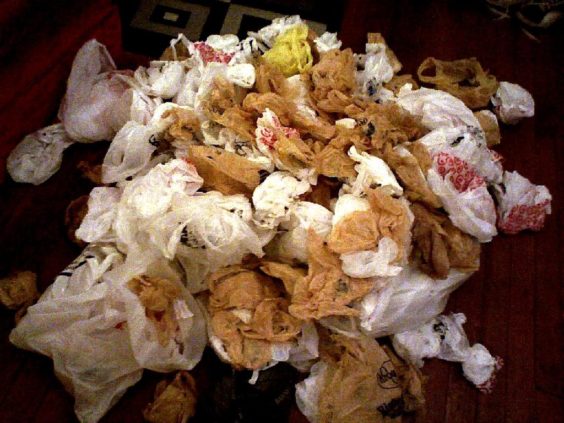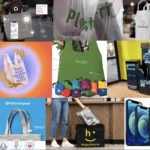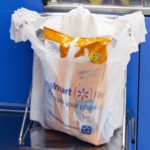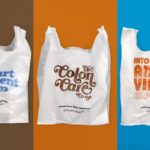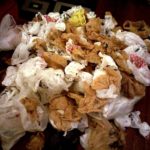For a while, “paper or plastic” was not a particularly controversial choice at the grocery store. Increasingly, though, shoppers are finding that the “wrong” choice could cost them – or they may have no choice at all.
A San Francisco judge on Wednesday upheld a law, set to take effect next month, that will ban plastic bags from virtually all retailers in the city. Retailers will also have to charge 10 cents apiece for paper bags, the intent being to encourage the use of reusable shopping bags. Supermarkets and pharmacies were already subject to an earlier version of the law, which has been in effect since 2007.
Several other cities across the country and around the world have similar bans. In July, a citywide plastic bag ban went into effect in Seattle, affecting even single-use plastic bags “advertised as compostable, biodegradable, photodegradable or similar,” the city explains. Retailers will also have to charge for paper bags, though reuseable plastic bags are allowed. That had some Seattleites scratching their heads this week, as they noticed new, heavier-gauge plastic bags showing up in their local stores. “It doesn’t make sense to me,” a shopper told KCPQ-TV. “I don’t think they should be selling plastic bags if they banned them.”
A month before Seattle’s law took effect, the mayor of Toronto, Canada asked the city council to scrap a law that forced retailers to charge a nickel for a plastic shopping bag. The council agreed, though many retailers kept charging the fee anyway (read: “Greedy Canadian Grocers Hoard Nickels”). Then the council promptly voted to ban plastic bags altogether. “It’s the dumbest thing council has done,” the mayor fumed, “and council’s done some dumb things, let me tell you.”
The mayor isn’t the only one objecting to well-meaning environmental ideas. Some communities have recently bailed out on partnerships with Recyclebank, once they realized how much they’d have to pay for the program, which encourages residents to recycle by offering deals and coupons. (Read: “Turn Your Trash Into Coupons (But Some Say, No Thanks)”)
But back to plastic bags. A research team at South Carolina’s Clemson University is promising to get to the bottom of the debate over which is best – paper, plastic or reusable bags. They announced today that they are conducting a study that will examine the environmental impact of the various types of grocery bags. The “factual, scientific-based analysis of grocery bag manufacture, use and disposal” aims to determine which type of bag is most environmentally-friendly. A pamphlet produced by the research team offers some early clues as to what they might find. Reusable bags “have been found to harbor bacterial growth” and “may contain lead,” it says. Paper bags “can only biodegrade in certain conditions where they have ample space and air, and therefore cannot successfully break down in the landfill.” Plastic bags, however, “contribute to less than 0.5% of all litter,” “80-90% of the population reuses plastic grocery bags” and hey, it’s “really easy to recycle them”!
The Clemson study just happens to be funded by a $180,000 grant from plastic bag manufacturer Hilex Poly, LLC, which “operates the largest closed-loop plastic bag recycling facility in the world, where plastic bags are turned back into resin pellets and then into new bags.” So their research definitely will not find that the best type of bag is one that can be recycled at the largest closed-loop plastic bag recycling facility in the world, where plastic bags are turned back into resin pellets and then into new bags.
Hilex Poly anxiously awaits the results of the study. At this rate, it can’t afford to lose any more customers.



